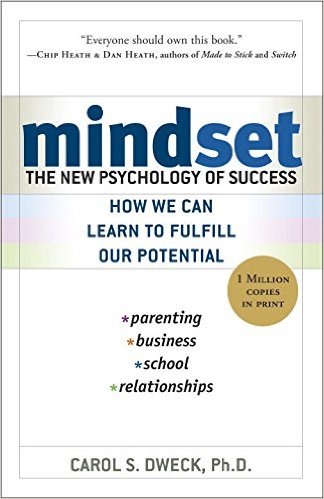
Back by popular demand is a revised summary of Mindset: The New Psychology of Success – How We Can Learn to Fulfill Our Potential by Carol S. Dweck, Ph.D. will help you learn how a simple belief about yourself guides a large part of your life. It is vital that all teachers and parents read this book.
Carol S. Dwech PhD
- Carol is one of the world’s leading researchers in the field of motivation and is the Lewis and Virginia Eaton Professor of Psychology at Stanford University. Her research has focused on why people succeed and how to foster success. She has held professorships at Columbia and Harvard Universities, has lectured all over the world and has been elected to the American Academy of Arts and Sciences. Her scholarly book Self-Theories: Their Role in Motivation, Personality, and Development was named Book of the Year by the World Education Federation. Her work has been featured in such publications as The New Yorker, Time, The New York Times, The Washington Post, and The Boston Globe, and she has appeared on Today and 20/20.
Estimating Your Own Ability
- Studies show that people with growth mindsets tend to be accurate in assessing their own abilities, even if it is unflattering. If you are oriented toward learning, you need accurate information about your current abilities in order to learn effectively. Howard Gardner is quoted as saying that exceptional people have “a special talent for identifying their own strengths and weaknesses.” They also have a special talent for converting life’s setbacks into future successes. Creativity research sees this as the number one ingredient in creative achievement. Dweck’s key message is that you can change your mindset as they are just beliefs.
Mindsets and Personality
- Beyond intelligence, fixed and growth mindsets impact your personality. People with fixed mindsets believe that they are what they are and cannot change. They want to be praised and not challenged. Those with growth mindsets want to get better and are accepting of people who point our their shortcomings. Marriages between different mindsets can fall apart as a result. Top performers in sports are those who constantly push themselves to be better. If you get a thrill from what’s easy, you may have a fixed mindset. If you enjoy what is difficult, you may have a growth mindset. You think that becoming is better than being.
What Do the Experts Know?
- If you have a fixed mindset, you think that tests and experts can somehow tell you what your potential is. Many accomplished people were thought to have little potential. Dweck lists Jackson Pollock, Marcel Proust, Elvis Presley, Ray Charles, Lucille Ball, and Charles Darwin as examples. Look for students who are energized by criticism. (Doug: My daughter studied fine arts at Pratt Institute in Brooklyn, NY. Every day she had to endure criticism of her work. As a result, she got better and better. After graduating in 2006 she immediately got work in the competitive art industry in New York City and has worked ever since.)





